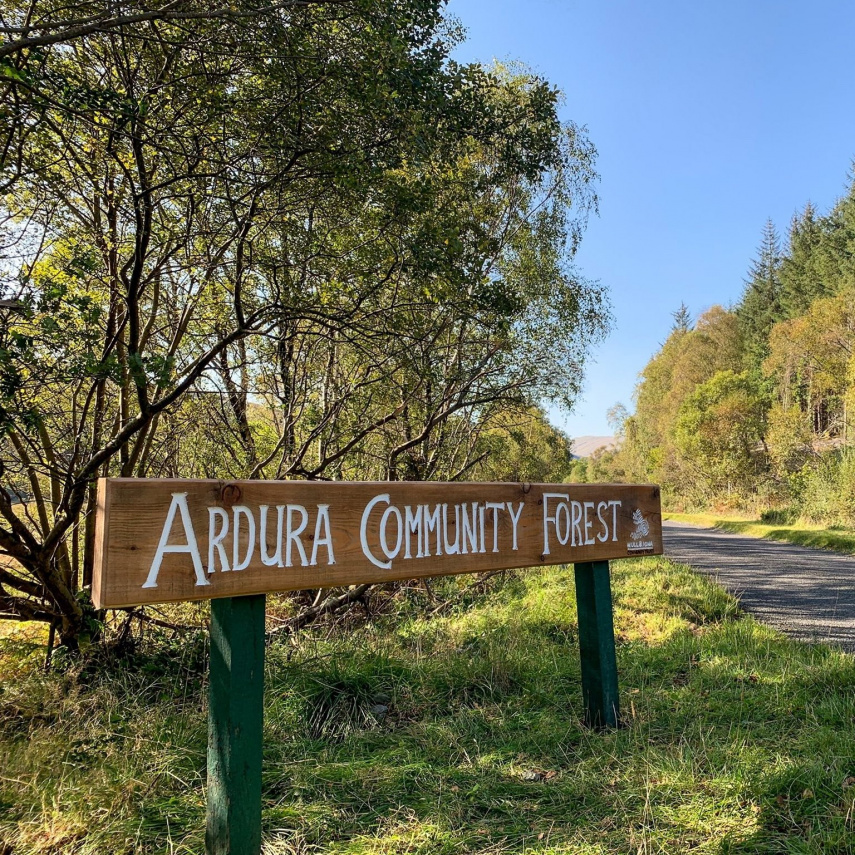Ardura Community Forest
Summary
Mull & Iona Community Trust (MICT) undertook a community asset transfer to acquire a publicly owned timber plantation with funds from the Scottish Land Fund. They have a three-year management agreement with Tree Story, a private consultancy, to manage the forest. The community has been heavily involved and engaged in the project, particularly in agreeing future land use. Income from harvested timber is being reinvested in planting native woodlands, developing community facilities in the forest and in wider community development including job creation and business development.
Detailed case study
Mull & Iona Community Trust (MICT) undertook a community asset transfer to acquire a publicly owned timber plantation. They have a three-year management agreement with Tree Story, a private consultancy, to manage the forest. Tree Story was able to offer technical knowledge in the development of the project, including income and expenditure estimates for the business case required to undertake the asset transfer. Income from harvested timber is being reinvested in planting native woodlands, developing community facilities in the forest, and supporting the running costs of MICT.
MICT consulted widely in the development of the project and were open to the land being used to attain other objectives, such as housing or employment, rather than nature and biodiversity. This openness led to widespread community support for the project and local people felt empowered in the decision-making process. Their views were listened to and action taken: for example, no neonicotinoid chemicals were used in the project, despite them being the industry standard for timber planting, and the project was adapted to accommodate this concern from the community.
Community engagement also identified opportunities for community benefit. Facilities were developed which allow the public to access the space more easily, such as a new carpark and an improved track network. Events and regular activities in the forest are organised by MICT and other community, faith and education groups. The project brought local employment, with local contractors being hired, and MICT established a local tree nursery using seeds from the forest.
The income from the timber sales has enabled these activities and other community projects to take place; for example, MICT used £150,000 from the sale to fund the expansion of their industrial business park. MICT are not able to access Woodland Carbon Code credits as they have not created new woodland but they are considering peatland restoration through the Peatland ACTION Fund and Peatland Code. Although there is currently no detailed process for measuring community benefit or access to the forest, MICT now feel more confident in land ownership, and they are now thinking about further community right to buy applications for both land and buildings.
